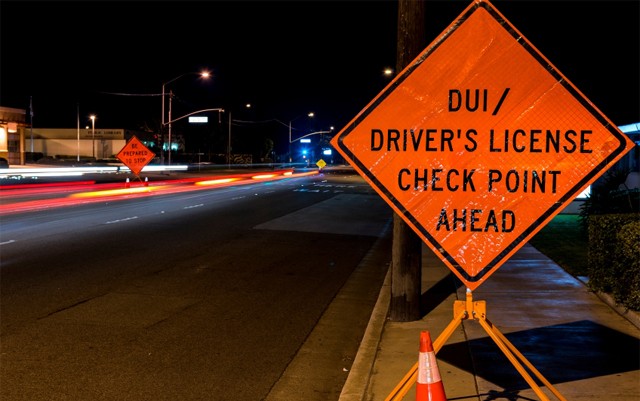With marijuana legalization comes a lot of new laws and restrictions – and in Colorado, the idea of treating marijuana like alcohol led to a law stating the “legal limit” of THC in one’s system while driving is 5 nanograms or more per liter of blood. If you don’t already know, 5 nanograms is not very much – and an individual who tokes up daily would most likely have a THC level higher than 5 nanograms.
The thing is, unlike alcohol, where how impaired someone is can be easily assessed by blood alcohol levels, cannabis intoxication cannot be so easily measured. Considering each strain has a slightly different effect and each individual will have an entirely different tolerance to the THC, there is no way to truly determine how impaired someone may or may not be when they get in the car.
It’s this knowledge that has saved many Colorado residents from having to deal with a DUI being permanently on their records. There have been many cases lately where individuals were pulled over (generally for routine reasons, such as a headlight being out), resulting in being cuffed and being administered a blood test; if their THC levels come out to higher than 5 nanograms they are automatically stuck with that DUI.
Some people decided not to let their record be dirtied up for a crime they did not really commit – they were not driving intoxicated (at least not on the level of someone with even a .06 blood alcohol level, which is perfectly legal). These individuals have taken their cases to court and in the end nearly all of them have been acquitted because there was not sufficient evidence that they were actually intoxicated.
Until there is an actual way to measure cannabis impairment – not just the levels of THC in your system – slapping around DUIs just isn’t a fair way to go. There have been countless studies since marijuana started being legalized – almost all of which will tell you the old stoner joke that “alcoholics run stop signs and stoners wait for them to turn green” could practically be true.
In all the studies done with simulators, drivers who consumed cannabis were more likely to drive slowly and leave more space between them and other cars in order to compensate, whereas those who consumed alcohol for the study were likely to drive much faster and more recklessly. Basically, the stoned drivers were much more aware of their possible impairment and tried to make adjustments to avoid an accident.
So is there any reason to worry about stoned drivers after all? It’s definitely a topic that will be up in the air for a while longer – at least until we can determine whether or not stoned drivers pose any major risk factors (hopefully compared against the actions of those “legally” intoxicated by alcohol).







Do they still do the walk-the-straight-line test for DUI?
Researchers in Norway say past studies about THC-positive drivers involved in motor vehicle accidents have failed to adequately control for other variables. In other words, authors have been quick to jump on cannabis as the cause – even when it may not have been. The researchers, who are set to publish their findings in the journal Addiction, reviewed more than 20 driving culpability studies and two meta-analyses published between 1982 and 2015. They adjusted the numbers and found “acute cannabis intoxication” increased crash risk only moderately – by about 20 to 40 percent, or an “odds ratio” of between 1.2 and 1.4.
By comparison, the U.S. National Highway Traffic Safety Administration reported that driving with legal amounts of alcohol in one’s system increases crash risk almost fourfold (an odds ratio of 3.93). Fun fact: Even the National Highway Traffic Safety Administration, a federal agency, acknowledges it’s “difficult to establish a relationship between a person’s THC blood or plasma concentration and performance impairing effects.”